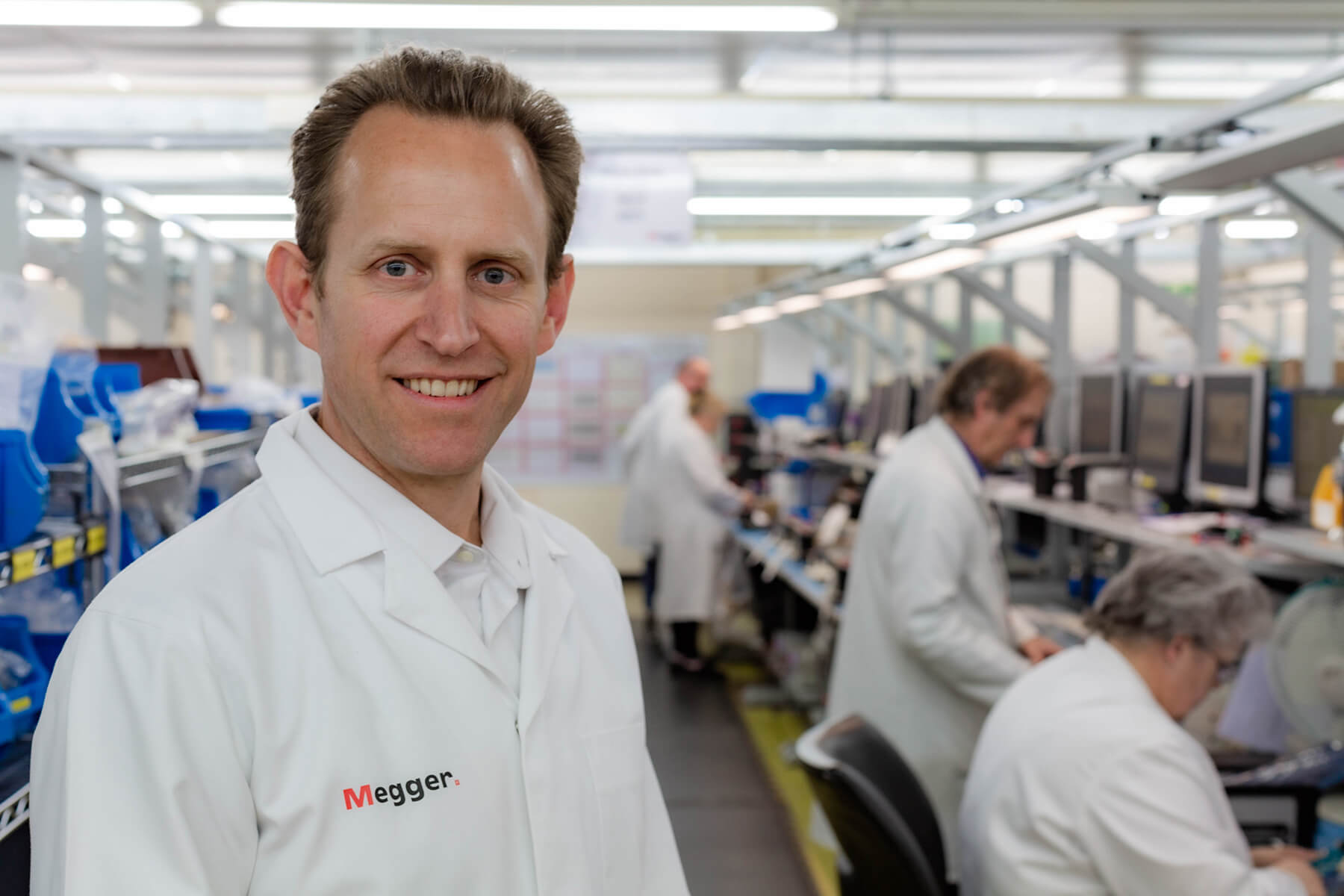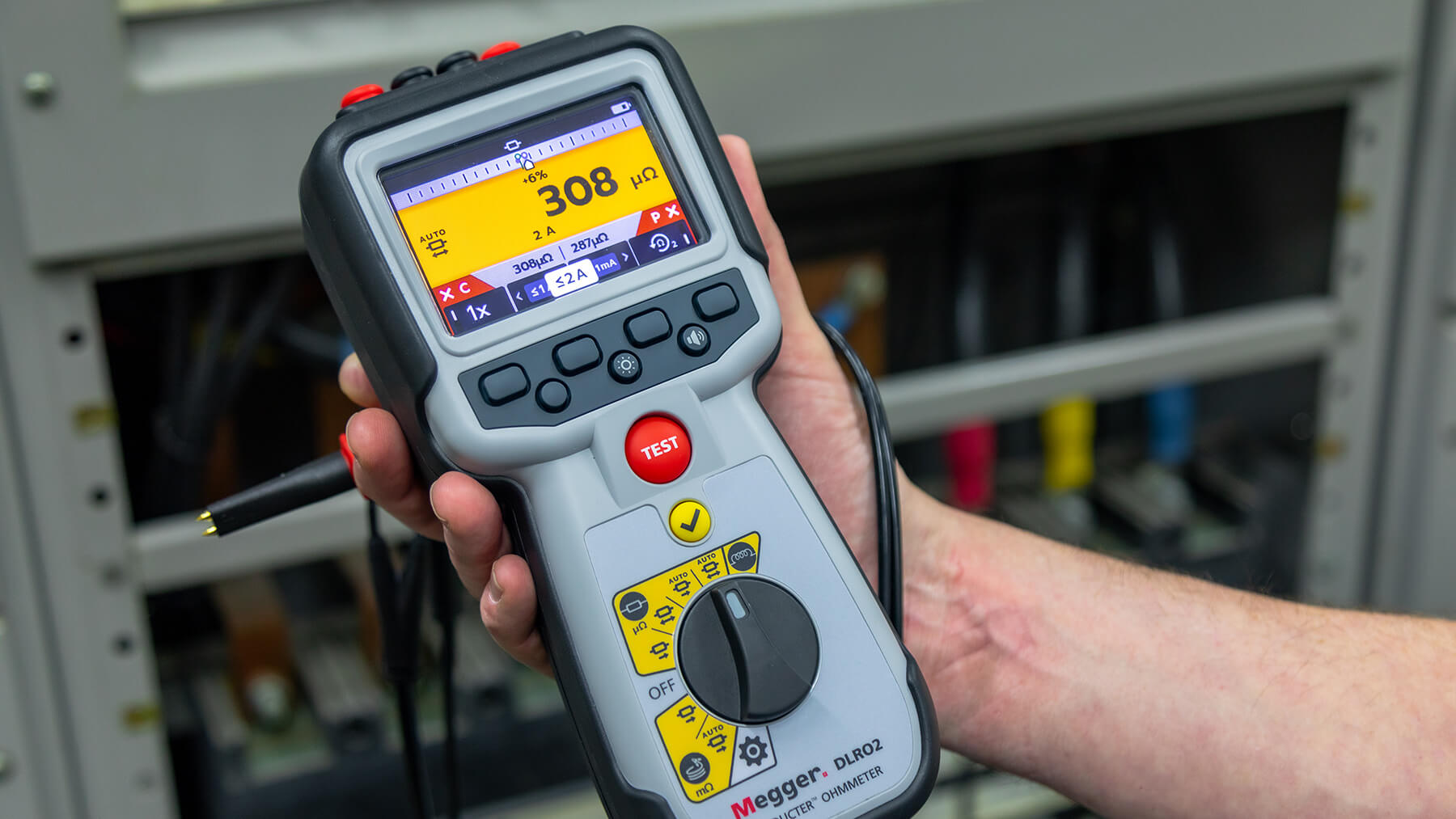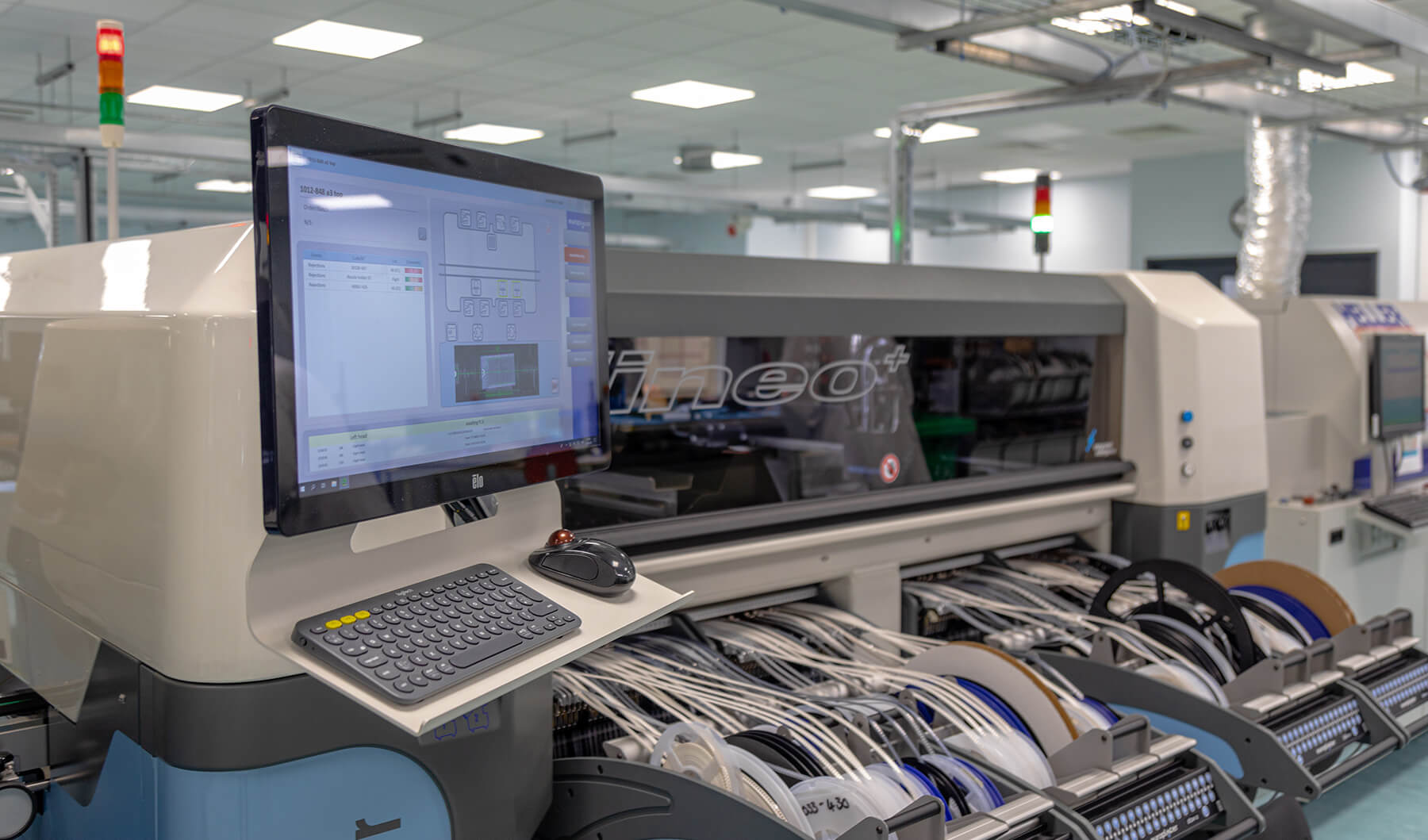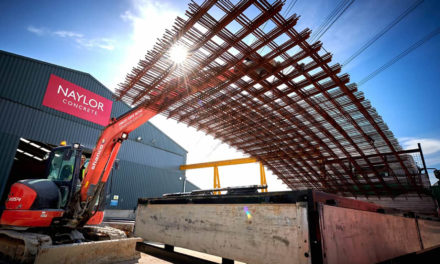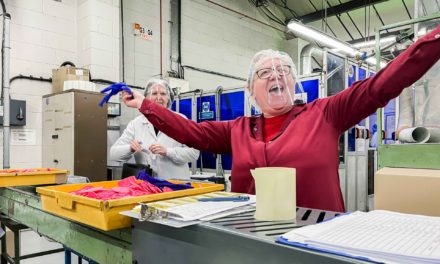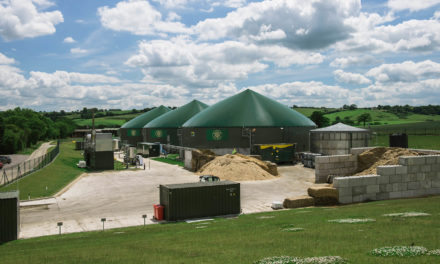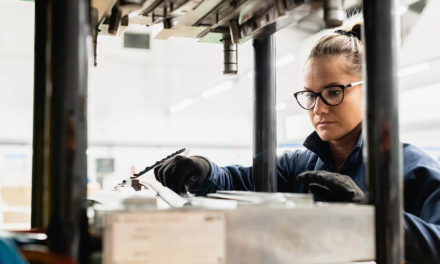Megger Group
It is arguably the best known brand in electrical testing in the world, testing transformers, relays, cables and more. But outside this ‘global niche’ this £250m company is not well-known.
Megger is well advanced in its strategy to offer customers real-time monitoring of the health of their electrical assets, i.e., adding services to what has historically been a hardware manufacturing company. And its growing fast, with the acquisition of Metrycom in March the latest in a string of purchases.
Above: Megger DLRO2 Handheld Low Resistance Ohmmeter, made in Dover
Two brand new printed circuit board assembly – PCBA – lines are running on full shifts, rapidly producing electronics for devices that keep people safe. These carefully engineered PCBAs contain the information needed to measure voltage and amperage in electrical equipment, vital for electricians and utilities to do their job safely. This automated machinery, as a well as a factory extension, is part of new investment in a set of large buildings at the end of the A20 just before the ferry port in Dover
This is Megger, a brand that is recognised by electricity professionals the world over. In Dover and at eight other production facilities globally, “At the basic level, everything that Megger does involves measuring volts or amps. How this is done and at what scale, varies,” says Piers Grumett, operations director. For example, the multifunction tester, a popular product, combines insulation, continuity resistance, earth loop impedance, RCD and earth spike testing. Megger is well progressed in a business transformation, from manufacturing periodic testing equipment only to providing constant, online asset monitoring and insights, as well.
Different technologies are deployed to measure electrical properties, including the measurement of resistance in series, the frequency range for current, time between cycles and more. Cables are often tested using time domain reflectometry that produces a reading like a radar signal, showing how far down the cable the fault is. “The key point is, we design and supply periodic testing equipment but we’re increasingly moving up the hierarchy to add digital services, like continuous cable monitoring,” says Grumett. “But our hardware expertise remains the core and we expect this to continue to make up the majority of the business in five-years’ time, with the addition of the digital tools.” Five years is the period in which Megger expects to double in enterprise value by.
The product offer transition is at three levels and Megger can offer all three. Level 1: the customer has an instrument and can test their assets or look for a fault from time to time. In Level 2, the customer buys online equipment – hardware and software – that continuously monitors their own assets. Level 3 is the data model: the customer receives data and analysis from either online monitoring or periodic testing or both that is used to determine a health index. Clearer business decisions can be taken with step three than with steps one or two alone.
Global operations
Megger has production facilities in Germany, the US, Sweden, Israel and the UK. In Europe, there is cable testing in Baunach and Radeburg, Germany. Power Diagnostix, a Megger acquisition in Aachen, Germany, builds portable units and online measuring systems to test partial discharge, the online systems constantly monitor the state of the electrical infrastructure. Equipment for testing the components of substations is manufactured in Danderyd, Sweden. This includes transformer, protection (such as relays), and batteries which are used in substations as a back-up.
Dover, UK is the home of test equipment for low voltage installations and building wiring such as lighting protection (including on wind turbines) or EV chargers, as well as transformer oil test sets. In the US, Fort Collins manufactures rotating machine and generator testing equipment, Dallas, Texas makes protection testing equipment, mostly relay testing for substations, and Valley Forge, Philadelphia supplies a mix; North American cable testing products, transformer testing and some battery and power quality testing. New acquisitions, such as Metrycom in Israel, now rebranded to Megger Grid Analytics, are adding new and online monitoring capabilities to the portfolio.
Data adds value
Some of Megger’s equipment captures electrical data that is analysed by software, which “paints a picture” of the asset’s health that Megger can then measure against optimally performing standards. “We can continuously analyse and provide companies with insights on that data, and an Asset Health Index tells you that, based on this data and using industry norms, the customer has more or less life in the asset than they might expect,” says Grumett. Generally, asset health software will monitor and do this for the company autonomously.
Megger’s many products have a cycle of product development, with a product refresh on a selection of product lines a year that is driven by customer feedback. New product introduction (NPI) is derived from requirements that typically demand higher accuracy, speed – for example, run a test that normally takes two hours in half an hour – and new functionality. “That is why we spend more than 10% of our revenue on engineering each year,” says Grumett.
TRAX, a multifunction transformer and substation test system, is a good example. It combines multiple test in a single, more conveniently sized unit and it performs more quickly than its predecessors. Speed of test is a key metric in electrical testing and makes for healthy NPI competition with Megger’s rivals.
Electrification needs load analysis
The Dover site is being extended for the two new PCBA lines, now onstream, and to accommodate extra production space for the BALTO range of DC current generators and two product families moving from the US. This is being part-funded with a loan that is underwritten by UK Export Finance, in recognition that Megger is increasing production in Dover, safeguarding and creating jobs, and exporting.
Megger is also actively taking a bigger role in the energy industry to provide solutions that support the decarbonisation of transport and heating, as part of that solution is electrification. “To be able to electrify vehicles properly, we need to know how much will be used and when, to ensure we’re managing the grid and loads reliably. Our solutions can help grid operators do that,” Grumett says.

